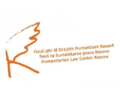European Commission: Serbia is slowly meeting the criteria for EU membership

In June 2017, the European Commission (EC) published its second semi-annual overview of the state of play as regards meeting the criteria for Serbia’s accession to the European Union (EU), as defined in Chapter 23 (Judiciary and Fundamental Rights). In accordance with the EU General Position on Accession Negotiations with the Republic of Serbia, the interim benchmarks for Chapters 23 have been established, and when it comes to war crimes, a number of measures are envisaged that will enable the EU recommendations for more effective domestic trials to be addressed in an adequate manner. The measures of the Government of the Republic of Serbia for the implementation of these recommendations are defined in the Action Plan for Chapter 23, and this semi-annual report shows whether and how much progress Serbia has made in their implementation. The EC has concluded that, despite the fact that more than a year has passed since the adoption of the Action Plan for Chapter 23 (adopted at the end of April 2016), implementation is still in many cases at an early or very early stage.
Since the EC received information from the Serbian authorities that “the elements of a monitoring structure” have been put in place through the establishment of a body dedicated to monitoring the implementation of the National Strategy for the Prosecution of War Crimes, this body needs to adopt strategic indicators for each objective in the strategy very swiftly, in order to measure its effective implementation and allow for any necessary adjustments.
The EC also states that Serbia has yet to adopt the Prosecutorial Strategy, or to publish a report on the work of the Office of the War Crimes Prosecution (OWCP), or to recruit a psychologist, all of which were activities that awaited the appointment of a new war crimes prosecutor.
The only training for prosecutors and judges dealing with war crimes is the training foreseen in the future OWCP strategy. A systematic induction and continuous training programme has not yet provided by the Judicial Academy.
The recommendations from the needs analysis of the War Crimes Investigation Service (WCIS), which was completed in February 2016, have yet to be implemented. The recommendations include maintaining the WCIS under the authority of the Criminal Police Directorate; increasing the number of police officers; introducing selection criteria which exclude any applicant formerly “involved in the conflict”; and requiring adequate expertise through specific past professional experience.
The Conclusions of the Expert Meeting on the proportionality of sentences, which was held in December 2015, have not yet been published.
Serbia has yet to print and distribute a report of the relevant case law providing for an overview of its sentencing policies in war crime proceedings.
In February 2016, the Commission for the Implementation of the Witness Protection Programme conducted an analysis of the treatment and operation of the Witness Protection Unit, focusing on the regulatory framework, human resource capacities, premises and technical resources. These recommendations have only started to be taken up.
Despite some initial steps to establish a witnesses and victims support service, Serbia still has no national and comprehensive institutionalized support for victims and witnesses.
The Prosecutor’s Office of the International Criminal Tribunal for the former Yugoslavia (ICTY) has had appropriate access to documents, archives and witnesses, and assessed cooperation with Serbia as satisfactory. Serbian liaison officers are investigating the archives of this court, identifying and analyzing materials and evidence, in order to transfer the necessary evidence to Serbia. However, the ICTY Prosecutor also expressed concern over Serbia’s lack of cooperation with the ICTY in terms of the non-execution of arrest warrants for three members of the Serbian Radical Party, which the ICTY is demanding for cases of alleged blackmail and other pressures on witnesses. In violation of judicial orders, Serbia has failed to provide information to the ICTY about its efforts to execute these arrest warrants, which have been pending since 19 January 2015.
The Criminal Code was amended in November 2016 to comply with the Framework Decision of 28.11.2008, with regard to the fight against certain forms of racism and xenophobia (2008/913 / JHA), and to the public approval, denial or trivialization of genocide, crimes against humanity and war crimes. However, the law does not comply with the 2002 and 2003 Council Decisions (2002/494 / JHA and 2003/335/JHA), which require EU Member States to implement certain measures aimed at effective investigation and prosecution of genocide, crime against humanity and war crimes.









